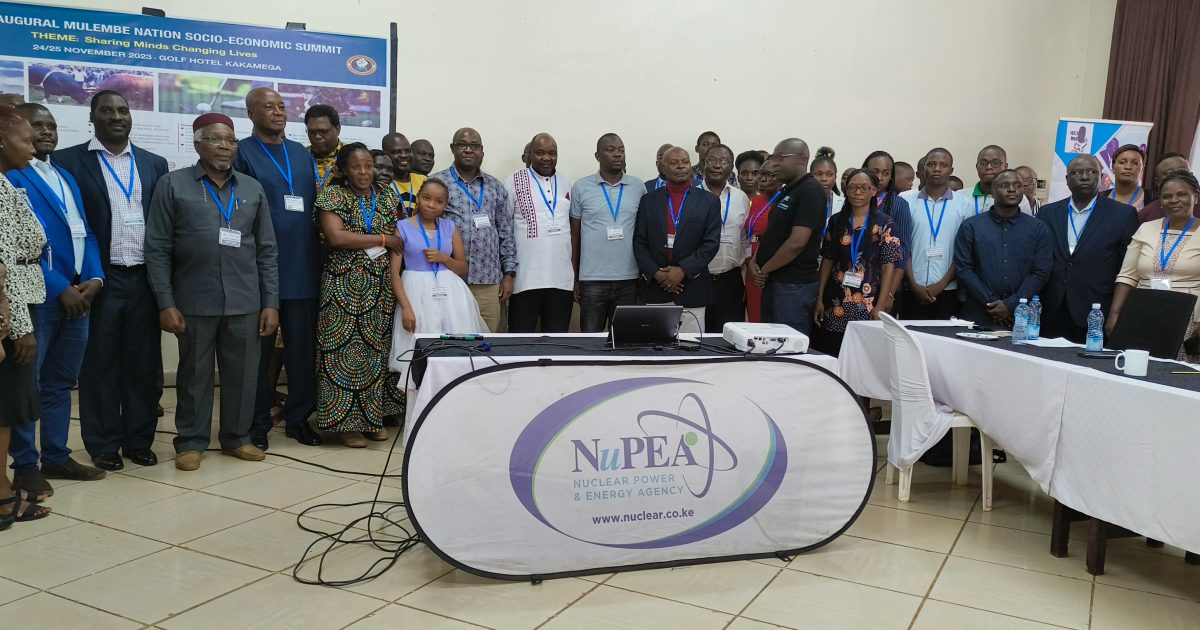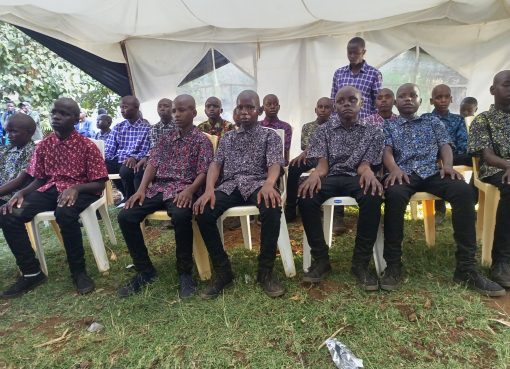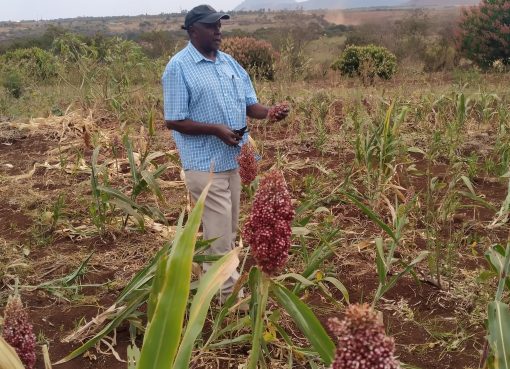The Nuclear Power and Energy Agency (NuPEA) is set to utilize Atoms4Food Technology to boost sugarcane production in Western Kenya Counties.
The Atoms4 Food Technology was recently launched by the International Atomic Energy (IAEA) and it involves using nuclear technology to produce healthier and safer food to enhance food security.
NuPEA’s Acting Chief Executive Officer, Justus Wabuyabo said the agency will partner with counties, Higher education institutions, sugar companies, and research institutions to get the available technological support, Human Institutional, and equipment to support the agricultural sector.
For instance, he noted that through research support, NuPEA enabled Chuka University to develop animal feeds and supported Moi University in developing wheat varieties that are drought-resistant and resistant to diseases.
“We also want to partner with the counties of western region to find ways in which we can ensure sugarcane is high yielding, is drought resistant, early maturing with high sucrose content so that our people can also make economic benefits from the crop,” he added.
Wabuyabo noted that if adopted, a technology known as Food Irradiation will enable Kenya to save on post-harvest losses particularly in Rift Valley and some Western Parts of Kenya, where despite bumper harvests, farmers lose over 30% of the harvest to attacks by pests, diseases and insects.
Speaking in Kakamega during the Inaugural Mulembe Socio-Economic Summit, Wabuyabo explained that food Irradiation technology is capable of being used to kill diseases, insects, and pests and is also used to preserve food.
“Many of you know about Israel, a desert country that produces surplus food. How do they do that? They use nuclear technology by developing high yielding, drought resistant crops with high nutritive value,” he noted.
He added that the technology used in such countries is able to supply crops with just the right amount of nutrients and the right amount of water needed by the crop to produce maximum yields.
“Nuclear energy is an indispensable tool for achieving the Global Development Agenda. The Government of Kenya has identified energy as one of the key enablers for achieving the country’s Vision 2030 agenda. Access to clean, environmentally friendly, affordable, reliable, safe, and sustainable energy is essential to achieving the country’s vision 2030 and the Kenya Kwanza bottom-up economic transformation agenda,” he disclosed.
The CEO said Kenya is set to benefit from nuclear energy, which is a long-term investment once the construction of a nuclear power plant begins in 2027 in Kilifi and will be ready for commissioning in 2034.
He noted nuclear energy has many uses including Agriculture, Medicine, Human health, water resource management, Industrial processes, Education, and Research and Training.
“In medicine, we all know about cancer and other diseases, nuclear technology is used in the identification or diagnosis of diseases and their treatment. Radiotherapy equipment uses nuclear technology,” he said.
He assured Kenyans that in all applications of nuclear technology, NuPEA will implement it in a safe manner.
The Initiative comes as Governor Fernandes Barasa announced that the Lake Region Economic Bloc is exploring opportunities to secure support to establish a Sugar Research Institute at Masinde Muliro University.
The Governor noted that the Institute will help in generating knowledge to make sugarcane farming more profitable.
Currently, Masinde Muliro University has a department that deals with Sugar Technology.
According to the University’s Vice Chancellor (VC) Prof. Solom Shibairo, there are three programs in the Sugar department that trains professionals to help in the sugar industry.
He said during the Lake Region Economic Bloc Sugar Conference that the University is also working on producing clean planting materials for sugarcane, urging the county government to allocate them a piece of land where they can raise the clean planting materials.
“We also participate in research on producing by-products that are molasses, bagasse as well and alcohol. So we are ready to partner not only with you in Kakamega County but across the lake region counties in research as well as producing capacity for sugarcane,” the VC added.
By Moses Wekesa





